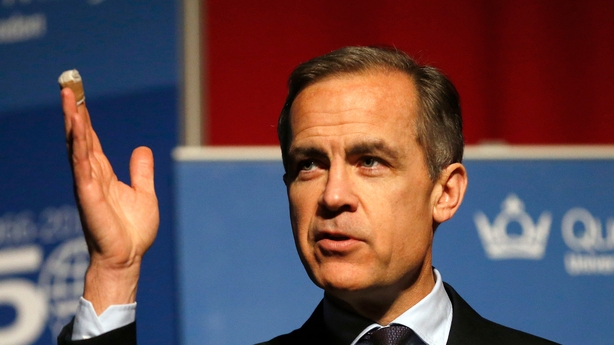The Bank of England kept interest rates unchanged today, wrong-footing many investors who had expected the first cut in more than seven years as Britain's economy reels from last month's Brexit vote.
The Bank said it was likely to deliver stimulus in three weeks' time, possibly as a "package of measures" once it has assessed how the June 23 referendum decision to leave the European Union has affected the economy.
"In the absence of a further worsening in the trade-off between supporting growth and returning inflation to target on a sustainable basis, most members of the Committee expect monetary policy to be loosened in August," the Bank said in minutes of its July meeting.
The minutes of the highly-anticipated decision by the Monetary Policy Committee (MPC) showed members voted 8-1 to leave rates at 0.5%, where they have been since March 2009.
One member - Gertjan Vlieghe - voted for an immediate cut to 0.25% amid signs that the EU referendum decision was already hitting parts of the economy, with growth set to come under further pressure.
Most economists in a Reuters poll had expected the central bank to halve its bank rate to 0.25% in order to cushion the economy from the shock of the Brexit vote.
Sterling jumps over 1.7 cents against US dollar in space of 1 min after Bank of England holds its key rate at 0.5% pic.twitter.com/r7NLU8rlm1
— RTÉ Business (@RTEbusiness) July 14, 2016
Sterling plunged more than 13% against the dollar in the days after the vote and trillions of dollars were wiped off stock markets globally.
However, the quicker-than-expected appointment yesterday of Theresa May as Britain's new prime minister has helped settle nerves in financial markets.
Bank of England Governor Mark Carney was due to meet Britain's new finance minister Philip Hammond later today.
Hours after his appointment, Mr Hammond said the UK government would do whatever was necessary to restore confidence in the economy and suggested a less aggressive approach to bringing down the budget deficit.
Mark Carney sent a clear signal two weeks ago that stimulus was on the way over the summer in an attempt to show the economy was in safe hands as the country's political leadership crumbled after the EU vote.
But Carney has also suggested he does not favour a sharp cut in borrowing costs because of the possible impact on banks based in Britain, and he has said he did not want to follow the example of the European Central Bank and the Bank of Japan by cutting rates below zero.

In the minutes published today, the Bank of England said the composition of any additional stimulus measures "would take into account any interactions with the financial system."
It also said the extent of any further stimulus measures would be based on its updated forecasts.
The MPC raised its expectation for economic growth in the three months from April to June to 0.5% from a previous forecast of 0.3%.
But it said growth was likely to weaken in the near term as a result of the referendum and the Bank of England cut its forecasts for investment in the housing sector significantly while also lowering its expectations for house prices in the near term.
Data released earlier today showed interest among buyers in Britain's housing market tumbled to its lowest level since mid-2008, adding to early signs of the Brexit hit to the economy.
The Bank of England said it expected "sizeable falls" in commercial real estate prices in the near term.
Last week, Carney warned last week that the financial risks of Brexit were materialising after valuations in the commercial property sector fell sharply prompting some investment funds froze their funds.

